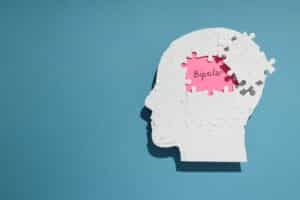Trauma doesn’t play favorites. Anyone can suffer from it, regardless of race, gender, ethnicity, socioeconomic standing, age, or sexual orientation.
Anyone can suffer a traumatic event at any point in their life, though it is slightly more likely among people with substance abuse disorders or mental health issues.
In many cases, the victim hides the trauma out of fear of embarrassment, stigma, or because they don’t realize the damage, it is causing them.
No matter the reason, it’s a good idea to be familiar with what emotional trauma looks like. That way, you can be alert to the symptoms in your loved ones and yourself.
Often a person won’t seek help until urged to do so by a friend or family member. We all owe each other to be aware of the signs of emotional trauma in those we love.
Keep reading for the emotional trauma symptoms that should alert you to a problem. There is help out there, and it’s important to get access to it as soon as possible.
Causes of Emotional Trauma
Before we get to the emotional trauma signs, let’s examine what causes the problem. The causes of emotional trauma are varied and affect people differently.
Emotional trauma is caused by an event or situation that feels threatening to the individual involved. Keep in mind that certain circumstances can be distressing to one person that might not be to another.
Some of the most common emotional trauma causes include the following:
- Natural disasters
- Child abuse and abandonment
- Rape
- Domestic violence
- Car accidents
- Major injuries
- Robbery
- Bullying
- Life-threatening illnesses
- The breakup of a romantic relationship
- The sudden death of a loved one
- Neglect
In some cases, emotional trauma can occur after a single incident. It might also be cumulative and appear after repeated exposure to the distressing event.
Below are some of the signs of trauma to look for. You should be especially vigilant if a loved one has experienced any of the above situations.
1. Sleep Disturbances
One of the most glaring signs of emotional trauma is a change in sleep habits. That includes sleeping more than usual or not being able to sleep at all.
Anxiety and depression are commonly associated with emotional trauma. Both can lead to insomnia or excessive sleep. Nightmares are another sign that some form of trauma is at play.
2. Reduced Performance
Whether at work or school, decreased performance is an indicator that emotional trauma might be at play. Struggling with mental health issues can interfere with cognition, which will appear in your everyday tasks.
At the same time, emotional trauma can also hinder memory, attention, energy, and concentration. This makes it difficult to focus on tasks at work or school.
3. Unhealthy Coping Mechanisms
Sometimes trauma can drive you to use unhealthy methods of coping with the emotions you’re dealing with. That may include alcohol, drugs, or sex.
Each of these things can temporarily provide relief but can lead to an addiction. A substance abuse problem will exacerbate your trauma and delay the healing process.
It’s better to seek professional help as soon as you can. This helps you learn healthy ways to sort through your emotions and move on from the traumatic event you experienced.
4. Loss of Interest in Activities
Another telltale sign of trauma is the loss of interest in previously enjoyable activities. Both the trauma itself and the depression and anxiety it may cause take the joy out of many things.
If you or someone you know has stopped taking pleasure in formerly enjoyable things, there is likely an issue that needs to be dealt with.
This may present as refusal to participate in activities but may also look like apathy or boredom during those activities.
5. Fear
Many people who suffer trauma report that they are more fearful afterward. That may present as being easily startled in the days, weeks, and months after the incident.
The person may also be more vigilant for signs of potential danger. They may also become overly cautious in similar situations. For example, a car accident may cause slower driving or avoidance of driving altogether.
6. Flashbacks
Flashbacks are a common sign of emotional trauma. They cause a person to relive the event, which can interfere with healing.
These flashbacks can occur at any time but are more likely in places and situations similar to those that played a part in the traumatic event. They can interfere with day-to-day living and are a sign that help is needed.
7. Mental Illness
Emotional trauma can often lead to other mental illnesses. As mentioned above, many people suffer from depression and anxiety after a traumatic event. This is true for a single incident, as well as prolonged trauma.
In addition, people may suffer panic attacks and obsessions, and compulsions. Some people go on to receive a diagnosis of post-traumatic stress disorder after an emotionally traumatic event.
What to do About Signs of Emotional Trauma
If you or someone you know has suffered emotional trauma and is experiencing any of these symptoms, it’s important to get help right away.
In many cases, working with a therapist can help resolve the symptoms and allow you to lead a healthy life in the future. This may involve medications to help balance your emotions.
In addition, there are some lifestyle choices you can make to help with the healing process. Getting enough exercise and eating healthy are both important.
Avoid drugs and alcohol and find a supportive network of friends and family who can help you along the way. It’s also important to get enough sleep.
It can be tempting to isolate after a trauma, but making friends, joining a support group, volunteering, and participating in social events goes a long way toward helping you heal.
Taking the First Step
Healing from trauma can be scary and overwhelming. If you’re suffering from any of the signs of emotional trauma, getting help is important.
You aren’t doomed to a lifetime of suffering. It’s vital to acknowledge what happened to you and learn how to cope with the repercussions. The good news is that many people who suffer trauma live happy and fulfilled lives.
If you’re ready to get the help you need, give us a call today to make an appointment with one of our qualified therapists.







